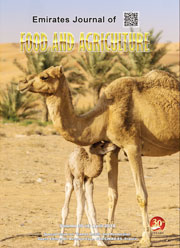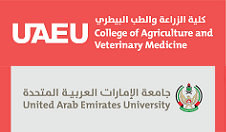A metagenomic approach in the evaluation of the soil microbiome in coffee plantations under organic and conventional production in tropical agroecosystems
DOI:
https://doi.org/10.9755/ejfa.2020.v32.i4.2092Abstract
The aim of this study was to determine the soil microbiome throughout mass sequencing in coffee plantations managed with either an organic (OAM; i.e., bio-fertilizers Azospirillum brasilense and Glomus intraradices) or a conventional (CAM; i.e., traditional NPK-fertilization) agronomic systems. Soil microbiome samples were collected in tropical eastern Mexico (Veracruz, 19°28’ N & 96° 52’ W), with annual average temperature and rainfall of 24.8° C, and 882.6 mm, respectively. Upon DNA soil-microbiome extraction, the V3-V4 16S rRNA region was amplified, and sequenced (Illumina). Results were analyzed with QIIME based on the EzBioCloud reference. Diverse phyla (n=16), classes (n=40), orders (n=90), families (n=135) and genera (n=333) were identified. The diversity index values were similar in both treatments, with Shannon's being 9.7 and Simpson's 0.99. While the phylum Proteobacteria was more abundant in CAM-soils and classified as copiotrophic, the phylum Acidobacteria was more abundant in OAM-soils and classified as oligotrophic. This classification may be related to the application of microorganisms and their effect on the soil´s state of organic matter and carbon fractions. Our research outcomes indicate that the application of bio-fertilizers promoted an increased presence of Acidobacteria, a phylum positively correlated with organic matter while significantly involved in carbon sequestration. Undisputable, metagenomics emerges as an interesting up-to-date genomic technology for unveiling the hidden content of the soil microbiome black box.










 .
.